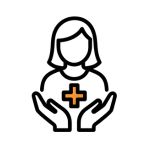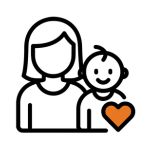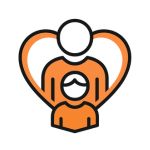
Raising a child alone can be financially and emotionally demanding, especially in a country where the cost of living continues to rise faster than most incomes. For many single mothers in South Africa, meeting everyday needs like food, school fees, transport, and medical care often means making difficult trade-offs. With limited income and little or no financial support from the other parent, many rely on government grants to make ends meet.
Key Takeaways
- Single Mothers Face Financial And Emotional Pressure: Many single mothers in South Africa carry the full responsibility of providing for their children, often on one income, leading to both financial and mental stress.
- Social Grants Provide Targeted Support: Various grants such as the Child Support Grant, Care Dependency Grant, Foster Child Grant, and Social Relief of Distress Grant are available through SASSA to help single mothers meet basic living needs.
- Support Services Are Available Beyond Grants: Organisations like DCGsa, Focus on the Family South Africa, and SADAG offer debt counselling, emotional support, and mental health services to assist mothers in coping with the challenges of raising a family alone.
About Arcadia Finance
With Arcadia Finance, securing a loan is quick and stress-free. There are no fees to apply, and you can compare offers from 19 fully compliant South African lenders. Find reliable solutions that match your needs.
Household Income Versus Basic Needs for Single Mothers in South Africa
Many households in South Africa are facing ongoing financial hardship. According to data from Statistics South Africa (Stats SA), annual consumer price inflation rose to 7.4% in 2023. This increase was much higher than typical wage growth, making it difficult for families to manage their everyday costs. On average, South African households spend nearly 30% of their total income on food, while another 45% is allocated to housing, transport, and utilities. These fixed expenses leave little room for other essential needs such as healthcare, education, and personal care items.
Single mothers are especially vulnerable in this financial climate. Around 41% of children in the country live only with their mothers, while just 4% live solely with their fathers, based on the General Household Survey from Stats SA. Many single mothers are left to manage their entire household on one income. Often, they do not receive regular support from the child’s other parent. This means they must cover food, housing, schooling, and other basic needs for more than one person using just their own salary or social grant support.

Mental Strain Caused by Financial Pressure
Financial hardship affects more than just physical living conditions. For many single mothers, the ongoing pressure to provide for their families also affects their mental health. According to reports from the South African Depression and Anxiety Group (SADAG), money-related stress is a key cause of anxiety and depression in the country. The uncertainty around making ends meet, covering school fees, or putting food on the table creates ongoing emotional strain. This often leads to constant worry, feelings of guilt, and emotional exhaustion.
Social psychologists have noted that when a parent lives with constant financial insecurity, they may experience long-term stress. This type of stress affects emotional well-being and can reduce the ability to make clear decisions. It may also affect the way mothers interact with their children, as the pressure to meet basic needs can sometimes push emotional support to the side. Many mothers in this position try to balance everything but may feel they are falling short despite their best efforts.
What Is A Social Grant?
A social grant is financial support provided by the South African government to individuals who face economic hardship. These grants are managed by the South African Social Security Agency (SASSA), which is responsible for reviewing and processing applications.
The purpose of social grants is to assist those who are most at risk of poverty and who require state assistance to meet basic living needs. This includes elderly individuals, persons living with disabilities, and caregivers of young children.
To qualify for a social grant, the applicant must be either a South African citizen, a permanent resident, or a recognised refugee. Proof of official refugee status must be provided by those applying under that category. All applicants must also currently live within South Africa’s borders to be considered for eligibility.

Grants to Help Single Mothers in South Africa

Care Dependency Grant
Who Is Eligible?
The Care Dependency Grant is available to caregivers of children under the age of 18 who have been medically assessed as permanently and severely disabled. The child must require full-time, special care due to their condition.
Eligible applicants include biological parents, foster parents, or any adult legally recognised as the full-time caregiver of the child.
However, the grant will not be approved or continued if the child is admitted to a state-funded institution and receives full-time care there for more than six months.
How Much Is Paid?
As of 2025, the Care Dependency Grant pays R2 180 per month per eligible child. This amount is adjusted periodically by the South African Social Security Agency (SASSA).
How to Apply
Applications must be made in person at your nearest SASSA office. You will need to provide the following:
- Your South African ID
- The child’s birth certificate
- A recent medical or assessment report confirming the child’s permanent disability
- Proof of income (if applicable)
- The child must be present for verification
Once approved, the grant is paid monthly via a SASSA card, direct bank deposit, or cash at a designated pay point.

Child Support Grant
Who Is Eligible?
The Child Support Grant is intended for low-income caregivers who are responsible for children under the age of 18. The applicant must be the child’s primary caregiver, which means providing for the child’s daily needs such as food, shelter, and general care.
Eligible caregivers include biological parents, legal guardians, relatives, or non-relatives who have taken on the role of full-time caregiver. The applicant must be at least 16 years old, live in South Africa, and reside with the child.
Biological parents who are not the main caregivers and cannot prove they are supporting the child will not qualify.
How Much Is Paid?
As of 2025, the Child Support Grant provides R530 per child per month. This amount is reviewed and adjusted annually by SASSA.
How to Apply
You can apply at your nearest SASSA office. The following documents are required:
- Your South African ID
- The child’s birth certificate
- Proof that you are the primary caregiver, such as an affidavit from a social worker, principal, or community leader
- Proof of income, if required
Once approved, the grant is paid each month through a SASSA card, a direct deposit into your bank account, or at a designated cash pay point.

Foster Child Grant
Who Is Eligible?
The Foster Child Grant is available to foster parents who have been legally appointed by the Children’s Court to care for a child who is not their biological child. The foster child must be under 18 years old and officially placed in the caregiver’s care through a court process.
The applicant must live in South Africa and have a valid court order confirming the foster placement. Social workers from the Department of Social Development oversee and assist with these placements in partnership with the Magistrates Court.
How Much Is Paid?
As of 2025, the Foster Child Grant pays R1 180 per child per month. This amount is meant to help foster parents support the child’s daily needs and education.
How to Apply
You can apply at your nearest SASSA office. You will need:
- A certified copy of your South African ID
- The child’s birth certificate
- A valid court order confirming the foster care placement
- Any supporting documents from the Department of Social Development
Before the grant period ends, a social worker will conduct a follow-up assessment to determine whether the child’s circumstances have changed. If an extension is needed, the caregiver must obtain a new court order.
If the foster child is still in formal education after turning 18, the grant may be extended until they reach 21, provided valid proof of study and an updated court order are submitted annually.

Social Relief of Distress (SRD) Grant
Who Is Eligible?
The SRD Grant is intended for individuals or households experiencing sudden and severe financial hardship. It was originally introduced during the COVID-19 period and continues to assist those in temporary crisis situations.
To qualify, at least one of the following conditions must apply:
- The main income earner is medically certified as unfit to work for less than six months
- The breadwinner has been admitted to a public or private institution for one month or longer
- The primary income provider has passed away, and the death is reported within 12 months of application
- An approved social grant is delayed and not yet paid out
- The applicant lives in an area affected by a disaster that has not been officially declared
The applicant must be a South African citizen, permanent resident, or refugee currently residing in South Africa.
How Much Is Paid?
As of 2025, the SRD Grant pays R370 per month. This amount is reviewed periodically and is meant as temporary relief.
How to Apply
Applications for the SRD Grant are submitted online through the official SASSA SRD portal. You will need:
- A valid South African ID or refugee permit
- A mobile number registered in your name
- Bank account details or a method of receiving funds
- Proof of your current situation, such as a medical certificate, death certificate, or social worker report if applicable
The grant is not permanent and is paid monthly for a limited time, depending on the individual’s circumstances. Extensions or reapplications may be necessary if hardship continues.

Other Organisations And Services That Support Single Mothers
DCGsa (Debt Counselling Group South Africa)
DCGsa helps individuals who are struggling to manage their debt and monthly budget. The organisation provides practical assistance with reviewing your debt situation, preparing a manageable budget, and assessing your income alongside your monthly costs. They aim to offer structured financial guidance that can help you get back on track. Even small changes to how you handle money can lead to improved financial stability. Their team is trained to assist in a professional and understanding manner. You can reach them on 0861 001 047.
Focus On The Family South Africa
Focus on the Family South Africa offers a confidential counselling service for families and parents who are going through difficult periods. Their telephone support line gives access to trained counsellors who can speak with you about family concerns, parenting stress, or emotional difficulties. This is a free service available to anyone in need of emotional support. If you require someone to talk to, call them on 0861 358 000.
South African Depression And Anxiety Group (SADAG)
SADAG provides telephone-based counselling and mental health resources for individuals facing emotional or psychological stress. They are one of the leading mental health support services in the country and offer access to help at any time of the day. Their 24-hour suicide prevention line is 0800 567 567, and for general support, they can be contacted at 0800 21 22 23. These services are aimed at offering immediate assistance to those who are feeling overwhelmed or distressed.
Conclusion
Raising children on your own in South Africa can be challenging, especially when financial support is limited. However, several grants and support services are available to assist single mothers who are struggling to meet their family’s basic needs. From the Child Support Grant to the Foster Child Grant and Care Dependency Grant, each option serves a different purpose and is designed to offer real, practical help. In addition to government support, non-profit organisations offer guidance with budgeting, counselling, and emotional support. By understanding the available options and how to apply, single mothers can take practical steps towards easing the burden and creating more stable living conditions for their children.
Frequently Asked Questions
You can apply for a social grant at your nearest SASSA office. Bring a valid South African ID, proof of income (or no income), your child’s birth certificate (if applicable), and any other supporting documents needed for the specific grant. SASSA staff will help you complete the application.
Yes. If you meet the qualifying criteria, you can receive more than one grant. For example, you may qualify for both the Child Support Grant and the Care Dependency Grant if you care for a child with a disability. Each grant has its own conditions.
If your application is denied, you can request a written reason from SASSA. After that, you have the right to appeal the decision within 90 days by submitting a written objection to the Department of Social Development.
Yes, the Social Relief of Distress (SRD) grant is still available in 2025 to assist individuals facing short-term financial hardship. Eligibility depends on your circumstances, and the grant is not meant to be a long-term solution.
Yes. Organisations like DCGsa, Focus on the Family South Africa, and SADAG offer additional support such as debt counselling, parenting help, and mental health services. These services are often free and can be contacted by phone.
Fast, uncomplicated, and trustworthy loan comparisons
At Arcadia Finance, you can compare loan offers from multiple lenders with no obligation and free of charge. Get a clear overview of your options and choose the best deal for you.
Fill out our form today to easily compare interest rates from 19 banks and find the right loan for you.


